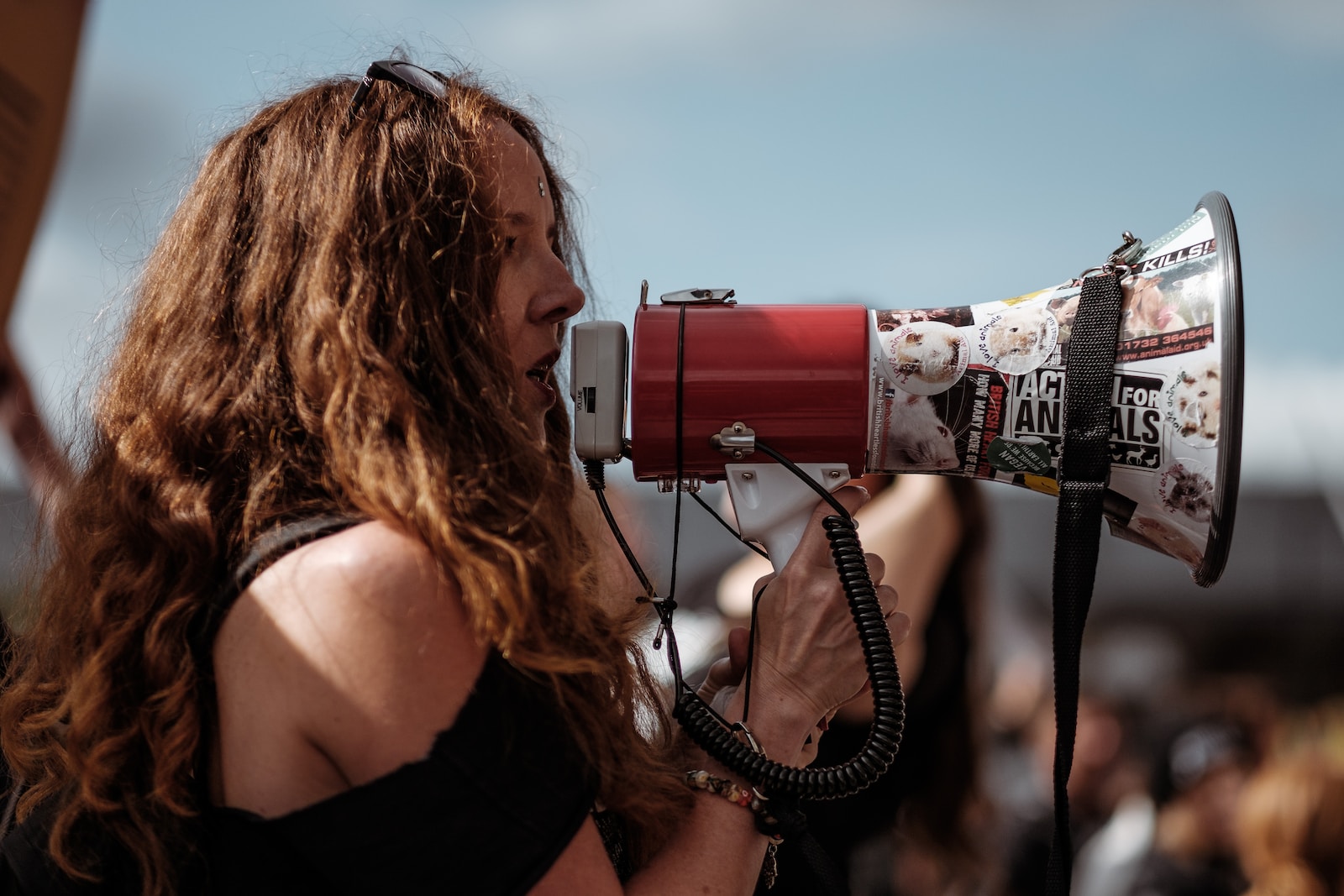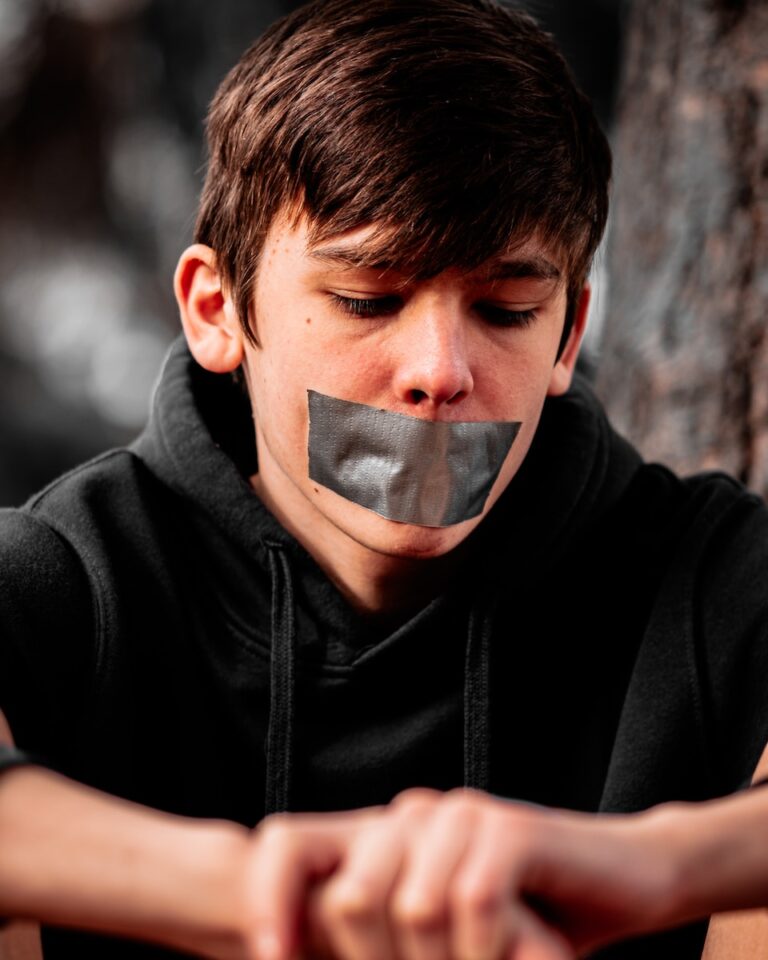Effective Communication for Stronger Relationships
Mastering the Art of Communication: Building Stronger Relationships Through Effective Communication Skills
Introduction: The Power of Communication in Building Relationships
In today’s fast-paced world, communication has become more important than ever. Whether it’s talking to family and friends or working with colleagues, effective communication can make all the difference in building strong relationships. Communication allows us to connect with others on a deeper level, understand their needs and perspectives, and build trust and respect.
The importance of communication in building relationships cannot be overstated. Clear and effective communication is essential for expressing feelings, thoughts, and ideas.
It helps in avoiding misunderstandings and resolving conflicts that may arise during any relationship. Without good communication skills, relationships can suffer from misunderstandings that result in unnecessary arguments or even worse- complete breakdowns.
Overview of the Benefits of Good Communication Skills
Good communication skills have numerous benefits when it comes to building relationships. Communication is the foundation for any healthy relationship because it enables you to connect with others on an emotional level while sharing your thoughts and feelings effectively. Good communication fosters mutual understanding, which leads to empathy towards each other’s perspectives; this goes a long way in building strong bonds between people.
Effective communication also helps individuals identify problems early enough before they become unmanageable; this makes them easier to deal with altogether. When we communicate well with our loved ones or workmates, we create an environment that breeds trust, respect as well as intimacy between us all while ensuring that everyone feels heard and understood at their core – leading to healthier relationships overall!
Active Listening
Paying Attention to the Speaker
Have you ever been in a conversation with someone, but you couldn’t remember a single thing they said afterward? It happens to the best of us.
One of the most important aspects of good communication is active listening. This means paying attention to what the other person is saying, and giving them your full focus.
If you’re easily distracted, make a conscious effort to put away any distractions such as your phone or laptop, and give your undivided attention. When practicing active listening, it’s important to stay engaged with the speaker.
Nodding your head and making eye contact can show that you’re actively listening and that you care about what they’re saying. Try not to interrupt them mid-sentence, as this can derail their train of thought and lead to frustration on both ends of the conversation.
Asking Questions and Clarifying Doubts
One of the best ways to show someone that you’re actively listening is by asking questions when they finish speaking. Not only does it show them that you were paying attention, but it also clarifies any doubts or confusion that may arise during the conversation.
Asking questions can also lead to deeper discussions and help uncover underlying issues or concerns. When asking questions, be sure they are open-ended rather than closed-ended questions.
For example, instead of asking “Did you enjoy your vacation?”, ask “What was your favorite part about your vacation?”. This encourages more detailed responses and allows for more meaningful conversations.
Avoiding Distractions
In today’s world where technology dominates our lives, it’s easy to get distracted during conversations. When speaking with someone in person, avoid looking at your phone or computer screen as this can be perceived as disinterest in what they’re saying. Additionally, try finding a quiet space where you won’t be interrupted by loud noises or other distractions.
During virtual conversations, it’s important to treat them as you would in-person conversations. Make sure your camera and microphone are working properly, and try to maintain eye contact with the speaker on the screen.
Avoid multitasking during video calls, as this can lead to misunderstandings or missed information. By avoiding distractions, you can focus your attention on building stronger relationships through effective communication.
Nonverbal Communication: The Power of Body Language
Communication is more than just the words we choose to say. In fact, studies show that over 90% of our communication is nonverbal. When you think about it, it makes sense.
Our body language and facial expressions can often convey emotions and messages that our words cannot. Understanding how to read and use nonverbal communication is essential when building better relationships.
One important aspect of nonverbal communication is body language. It’s the way we hold ourselves and move around in space.
For example, when someone crosses their arms or leans away from you, it can indicate discomfort or defensiveness. Conversely, open posture like facing someone directly or leaning in towards them shows interest and engagement in what they are saying.
Being aware of your own body language can also be helpful as it can communicate your level of interest and openness in a conversation. Another essential element of nonverbal communication is tone of voice.
The way we speak can convey emotions such as excitement, frustration, anger or concern without even uttering a word about them directly. Using an appropriate tone involves talking at a volume that’s comfortable for the listener while avoiding any monotony that may make the conversation boring or uninteresting.
The Eyes Have It: Maintaining Eye Contact
Maintaining eye contact during a conversation may seem like basic courtesy but doing so helps build trust between two individuals by indicating attentiveness to what the other person has to say. When someone avoids eye contact or looks away frequently during a conversation, it can suggest discomfort with the topic being discussed or lack of interest altogether. Conversely, maintaining good eye contact conveys confidence and attentiveness while also letting others know that they are valued in the interaction.
It’s important to note here that cultural differences sometimes affect eye-contact norms; for example in some cultures looking down while talking signifies respect. In general, however, good eye contact can go a long way to building stronger relationships as it conveys respect and trust between individuals and helps to establish a deeper connection that goes beyond just words.
Empathy
Putting oneself in another’s shoes
Empathy is the ability to understand and share the feelings of others. It is about trying to put ourselves in someone else’s shoes and see things from their perspective. Often, we tend to focus too much on our own feelings and needs without considering how the other person feels.
Empathy allows us to step outside our own bubble and view a situation through a different lens. When we practice empathy, we can better connect with others and build stronger relationships.
It helps us to understand where someone else is coming from, even if we don’t agree with them. By taking the time to consider their perspective, we can avoid misunderstandings or conflicts that might otherwise arise.
Understanding and acknowledging others’ feelings
Another important aspect of empathy is recognizing and acknowledging the emotions of others. This requires active listening skills, as well as the ability to be present with someone while they express themselves.
We should try not to judge or dismiss their feelings but rather validate them. For example, if a friend is upset because they had a fight with their partner, instead of telling them that they’re overreacting or that it’s not a big deal, try saying something like “I’m sorry you’re feeling so upset right now” or “That sounds really tough.” Validating someone’s emotions shows that you care about them and are there to support them.
Responding appropriately
Once we have put ourselves in another’s shoes and understood their emotions, it’s important to respond appropriately. This means considering what actions might be helpful or harmful in this situation, as well as how our words might impact the other person. We should always strive for kindness and compassion in our responses while also being honest about how we feel.
It’s okay if we don’t have all the answers or can’t fix the problem. Sometimes, just listening and offering support can make a big difference.
Overall, empathy is an essential component of good communication skills and building better relationships. By putting ourselves in someone else’s shoes, acknowledging their feelings, and responding appropriately, we can strengthen our connections with those around us.
Effective Feedback
Giving feedback to others can be challenging, especially when it involves constructive criticism. However, it is an essential communication skill that helps build better relationships.
When giving constructive criticism, it’s important to focus on the behavior rather than the person. Avoid attacking their character but rather focus on specific actions you’d like to see changed.
To give effective feedback, start by providing context and explaining why you’re giving the feedback. This helps the receiver understand the reason behind your comments and avoids any confusion or defensiveness.
Next, give clear examples of what they are doing well and where there is room for improvement. It’s important to provide specific examples that demonstrate how their behavior impacts you or others positively or negatively.
Giving Constructive Criticism
When giving constructive criticism, use “I” statements instead of “you” statements as this makes your message more personal and less accusatory. Additionally, use a neutral tone of voice and avoid negative language or blaming language as this may make the receiver feel attacked or defensive.
It’s also important to offer suggestions for improvement instead of merely pointing out flaws in someone’s performance. Be specific about what they could do differently next time and offer resources that might help them improve.
Providing Positive Reinforcement
It’s equally important to recognize people when they are doing well as it is to provide constructive criticism when necessary. Providing positive reinforcement helps build confidence in others and encourages them to continue doing good work.
When offering positive reinforcement, be specific about what behaviors you’re recognizing and why they are valuable. Authenticity is key so make sure that your compliments are genuine rather than generic praise.
Offering Specific Examples
Offering specific examples helps clarify our intentions towards others when providing feedback (both positive and negative). Vague comments can be easily misunderstood which can lead to conflict down the road. Specific examples help others understand the impact of their behaviour on others.
When giving feedback, be specific, but also balance your comments with compassion and empathy. Remember to always focus on the behavior rather than the person while providing feedback and offering specific examples of what they are doing well or could improve is a great way to ensure your message is understood and taken seriously.
Conflict Resolution
Identifying the Problem:
Conflict is inevitable in any relationship, and it’s important to identify the problem before trying to resolve it. This means that both parties need to be clear about what they are upset about.
It’s important to take time to reflect on the situation and think about what specifically triggered the conflict. This way, you can explain your thoughts and feelings in a constructive way.
It’s also important to avoid blaming others or making accusations during this process. Instead of saying “you always do this” or “you’re at fault,” try expressing how you feel and using statements that start with “I.” For example, instead of blaming someone for being late, try saying something like “when you’re late, I feel disrespected.” This will help to keep the conversation focused on resolving the issue rather than assigning blame.
Listening to Both Sides:
Once both parties have identified the problem, it’s important for each person to listen carefully without interruption. This means giving your full attention without thinking of a response while the other person is speaking.
Listening actively shows that you respect their opinion and want to understand their perspective. When listening, try asking clarifying questions so that everyone understands the issue clearly.
Avoid interrupting or becoming defensive when someone offers an opposing view. Instead of getting upset and escalating things further, try paraphrasing what they’ve said back to them so they know you heard them correctly.
Taking Responsibility for One’s Actions:
In any disagreement, both parties often have some fault in creating or exacerbating the situation. When conflict arises, it can be easy to become defensive and point fingers at each other instead of taking responsibility for one’s role in creating it. Taking responsibility means acknowledging one’s contribution toward creating or continuing an issue while showing remorse or regret over what happened.
It’s also about committing to making things right by changing one’s behavior, being more proactive in addressing issues, and apologizing if necessary. By focusing on solutions instead of blaming others, conflict resolution can lead to stronger relationships and more positive outcomes for everyone involved.
Conclusion: The Power of Communication in Relationships
Practicing good communication skills is essential to building better relationships. Whether you are communicating with your partner, friend, family member, or colleague, the way you communicate can make a significant impact on the quality of your relationship. Active listening, nonverbal communication, empathy, effective feedback and conflict resolution are all key components of successful communication and they require practice and patience to master.
When we actively listen to others and seek to understand their perspective without judgment or criticism, we build trust and respect in our relationships. This means giving them our undivided attention when they speak to us, asking questions when we don’t understand something they said and avoiding distractions that may interfere with effective communication.
Using appropriate body language such as maintaining eye contact and using appropriate gestures can also help convey our message more clearly. When coupled with an empathetic attitude that acknowledges other people’s feelings and responds accordingly while providing constructive feedback that helps them improve while we show appreciation for their successes – it becomes clear just how important it is to develop these skills.
While conflict may arise in any relationship – being able to identify the problem at hand without playing the blame game shows maturity on both sides of the discussion. By listening carefully to both parties’ perspectives before finding a solution that satisfies all parties involved builds stronger bonds between people.
Overall practicing good communication skills requires effort but is worth it for building strong relationships built upon mutual respect and understanding. By making small changes in how you communicate with others while keeping their needs in mind can have lasting positive effects on your personal life as well as your professional career!










